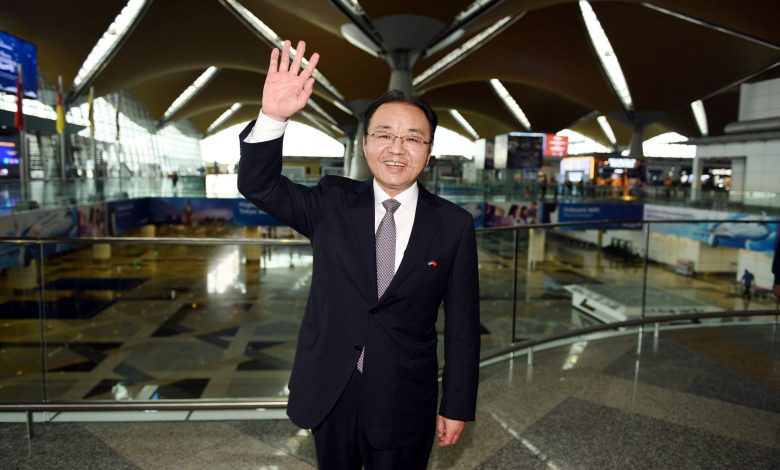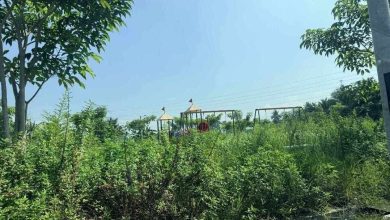

by Chan Kok Keong
Vice Chairman of the Perak Academy
and Honorary Legal Adviser to the Perak Chinese Assembly Hall.
Comparing the Visit by His Excellency Mr Ouyang Yu Jing, Ambassador of China to Malaysia, to Ipoh on 17th February, 2023 with Dr Sun Yat Sen’s Visit to Ipoh in the last century
Whilst the dinner preparations are going on to host the Ambassador, it is worth recalling some key historical facts and events behind the Ipoh and China connection. They are as interesting as they are important for the future of Ipoh, the Kinta Valley!
Whereas Dr Sun Yat Sen’s visits to Ipoh during the second decade of the last century were met with resistance by Manchu sympathisers, the reception which will be accorded to the Ambassador of China in 2023 will be one of unanimous support and welcome by all!
Dr Sun was in Ipoh then to drum up support for his revolutionary cause which culminated in the 1911 Revolution which saw the abdication of the Manchu Emperor.
At that time in history, sympathisers of the Manchu government of China were hostile to Dr Sun and legend has it that violence was used to chase him out of Ipoh including throwing cow dung at his gatherings.
Indeed, so great was Dr Sun’s impact that it moved two persons in the Kinta Valley to return to China to take part in an uprising whereby they lost their lives together with 70 others. One of them Eu Tong Hon is a descendant of the family which today owns the company known as Eu Yan Sang. The other was his friend, a 19 year old Guo Ji Mei from Gopeng who was at that time studying in Ipoh.
Of significance are also the legacies of the three “Tung Meng Hui” leaders living in Ipoh who befriended Dr Sun by contributing funds and helping him solicit support for the revolutionary cause. Dr Wong I Ek was three year’s junior to Dr Sun in the same medical school. Both Dr Wong and his wife were ardent supporters.
Two other leaders who were ordinary businessmen, namely, Teh Lay Seng and Lee Guan Swee were deeply attached to the ideals and struggle of Dr Sun. They donated their hard earned savings and sold their properties to help Dr Sun achieve his aim of reforming China and in the process overthrowing the Manchu government.
The latter’s great-great granddaughter, Chan Sue Meng has written a book recording Dr Sun’s times spent in Ipoh and the Kinta Valley. It also chronicles the friendship between her great-great grandfather Lee Guan Swee and Dr Sun.
In Ipoh today, the historical sites connected to Dr Sun and his “revolutionary friends” have been identified and a visitor to Ipoh cannot fail to spot them in places in the Old Town area such as Happy 8, Sekeping Kong Heng (famous Ipoh Chicken koay teow) and in other parts like the Lok Lum Club and Yuk Choy School. Also in the list is Teh Lay Seng’s original shophouse in Jalan Bijih Timah (Leech St) where Teh Lay Seng ran his rice and oil import business.
Amongst the Manchu sympathisers was Foo Choo Choon who was a member of the Perak State Council and vehemently opposed Dr Sun Yat Sen during his visits to Ipoh. However, he changed his position after the successful revolution in 1911.
Such was the fervour after news broke out about the fall of the Manchu Emperor that there were public meetings all over the country not excluding Ipoh where Foo Choo Choon spoke about the change of times and donated $5000 to the cause. In 1913, he became the President of the Perak Chinese Chamber of Commerce in which he was a founding member. Some of his descendants like those of the “Tung Meng Hui” leaders are still living in Ipoh today.
Perak was the 3rd largest contributor of funds to the revolutionary cause. Perak also had the largest number of reading clubs (“Tung Meng Hui”) which helped disseminate revolutionary messages to the common masses.
Indeed, out of the 100 reading clubs in South East Asia, 24 of them were to be found in Perak.
Other than reading groups, there were also drama troupes which wielded great influence such as the Perak Welfare Troupe based in Ipoh. Their object was to encourage the people to overthrow the Manchu government.
Sun Yat Sen, the Father of Modern China visited Ipoh to raise funds for his revolutionary activities. He recognised the financial help and sacrifices of the Chinese living abroad by describing them as “the Mother of the Revolution”. It cannot be denied that Ipoh and the Kinta Valley played a major role in the toppling of the Manchu Emperor by sacrifices in terms of blood and money.
Apart from money, blood and sweat and toil to the revolutionary cause which came to fruition in 1911, Ipoh also came to the aid of China when Dr Wu Lian Teh who had a clinic in Brewster Road identified the cause of the bubonic plague. He was nominated for a Nobel Prize, possibly, the only Malayan or Malaysian ever to have come so close to being an actual recipient.
Ipoh also played a big role in raising funds to defend China against Japanese aggression during the 2nd World War.
A prominent resident of Ipoh, Lau Pak Khuan, where a road is named after him, was a big donor. During his lifetime, he was President of both the Assembly Hall and the Chamber of Commerce at various times.
The Perak Chinese Chamber of Commerce and the Perak Chinese Assembly Hall are jointly hosting a dinner in honour of the visit by Mr Ouyang, the Ambassador of China to Malaysia, at the Sun Lee How Fook Restaurant on 17th February 2023 at 7 pm. His hosts are leading and respected members of the business community and civic organisations.
It is to be hoped that the Ambassadorial visit will bring investment and more job opportunities to Ipoh and Perak.
In view of the significant part played by Ipoh in the Chinese revolution, the establishment of a Consulate will be in order. And also a branch of the Bank of China to facilitate investment!



Thank you for such a beautifully written article, Chan Kok Keong!